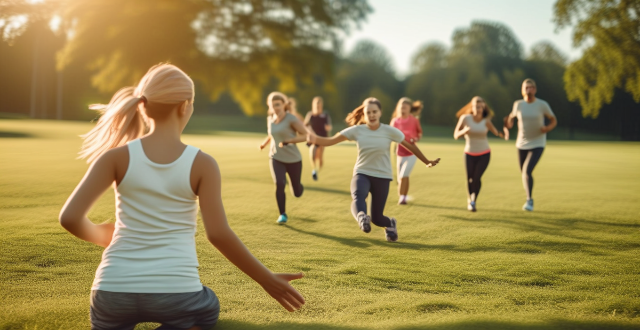Sports play a vital role in community development by promoting physical health, fostering social interaction and unity, contributing to economic growth, and providing educational opportunities and personal development. Participating in sports can prevent chronic diseases, strengthen bones and muscles, and boost the immune system while also improving fitness levels. Sports events provide opportunities for teamwork, cultural exchange, and increased tourism, leading to job creation and revenue generation. Additionally, sports offer educational opportunities for skill development and personal growth, contributing to the overall well-being of community members.

How Does Sports Contribute to Community Development?
Sports play a vital role in the development of communities. They not only promote physical health but also foster social interaction, economic growth, and cultural exchange. In this article, we will explore how sports contribute to community development in various aspects.
Physical Health and Fitness
Improved Health
One of the most obvious benefits of sports is improved physical health. Engaging in regular physical activity can help prevent chronic diseases such as heart disease, diabetes, and obesity. It also strengthens bones and muscles, improves cardiovascular health, and boosts the immune system.
Increased Fitness Levels
Sports also contribute to increased fitness levels among community members. By participating in sports, individuals can improve their endurance, strength, flexibility, and overall athleticism. This leads to a more active and healthier lifestyle, which has a positive impact on the community as a whole.
Social Interaction and Unity
Teamwork and Collaboration
Sports provide opportunities for teamwork and collaboration among community members. Participating in team sports teaches individuals how to work together towards a common goal, communicate effectively, and support each other. These skills are essential for building strong relationships within the community and fostering a sense of unity.
Cultural Exchange
Sports events often bring together people from different backgrounds and cultures. This provides an opportunity for cultural exchange and understanding among community members. Through sports, individuals can learn about different traditions, customs, and perspectives, leading to greater acceptance and appreciation of diversity within the community.
Economic Growth and Development
Job Creation
The sports industry creates numerous job opportunities within communities. From professional athletes and coaches to administrative staff and volunteers, sports events require a wide range of personnel to ensure their success. This contributes to economic growth by providing employment opportunities and generating revenue through ticket sales, merchandise, and sponsorships.
Tourism and Revenue Generation
Sports events can attract tourists from other regions or even countries, bringing additional revenue to the community. This includes accommodations, dining, transportation, and entertainment services provided by local businesses. The increased tourism also helps to promote the community's culture and heritage, further enhancing its appeal as a destination for visitors.
Educational Opportunities and Personal Development
Skill Development
Participating in sports offers numerous educational opportunities for individuals. Athletes develop valuable life skills such as discipline, perseverance, time management, and goal setting. These skills are transferable to other areas of life, including academic pursuits and future careers.
Personal Growth
Sports provide a platform for personal growth and self-discovery. Athletes learn to overcome challenges, handle pressure situations, and build resilience. They also gain confidence in their abilities and develop a sense of accomplishment through their achievements in sports. This personal growth contributes to the overall well-being of community members and fosters a positive environment for personal development.
In conclusion, sports play a crucial role in community development by promoting physical health, fostering social interaction and unity, contributing to economic growth, and providing educational opportunities and personal development. By encouraging participation in sports at all levels within the community, we can create a healthier, more connected, and prosperous society.